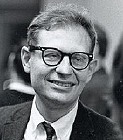 Psychologist Lawrence Kohlberg created a theory of moral development (or more properly, “moral reasoning”) based upon Jean Piaget’s stages of cognition. There are three basic levels: preconventional, conventional, and postconventional, and two stages within each level. The six stages are as follows:
Psychologist Lawrence Kohlberg created a theory of moral development (or more properly, “moral reasoning”) based upon Jean Piaget’s stages of cognition. There are three basic levels: preconventional, conventional, and postconventional, and two stages within each level. The six stages are as follows:
Level 1 (Preconventional)
1. Obedience and Punishment Orientation – at this stage of moral reasoning, the individual acts from a belief that if they do something wrong they will be punished, so that the best reason for avoiding doing wrong is to avoid punishment.
2. Self-Interest Orientation – at this stage of moral reasoning, the individual will act from a belief that is may be okay to do something “wrong” if there is “something in it for me.”
Level 2 – Conventional
3. Interpersonal Accord and Conformity – at this stage of moral reasoning, the individual acts in order to fulfill prespecified social roles, such as the desire to be a “good girl” or “good boy.”
4. Authority and Social Order Maintaining Orientation – at this stage of moral reasoning, the individual acts in order to maintain the social order. “We have laws for a reason,” goes this orientation, “to keep order.”
Level 3 – Postconventional
5. Social Contract Orientation – at this stage of moral reasoning, the individual acts with an understanding that laws are created by people coming together for the common good, and that these same people can change these laws if new demands or conditions arise. Thus, laws are not fixed in concrete, but need to be flexible and accommodate new circumstances.
6. Universal Ethical Principles – at this stage of moral reasoning, the individual acts with the understanding that there are “higher laws” that go beyond conventional socially-imposed laws, and that these higher laws encompass abstract philosophical ethical principles (e.g. Kant’s categorical imperative). This is the stage of a Martin Luther King or a Mahatma Gandhi.
For more information about the stages of life in different cultures and traditions, see Thomas Armstrong , The Human Odyssey: Navigating the Twelve Stages of Life.
This article was brought to you by Thomas Armstrong, Ph.D. and www.institute4learning.com.
Follow me on Twitter: @Dr_Armstrong



















